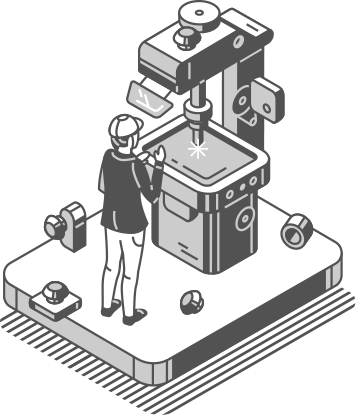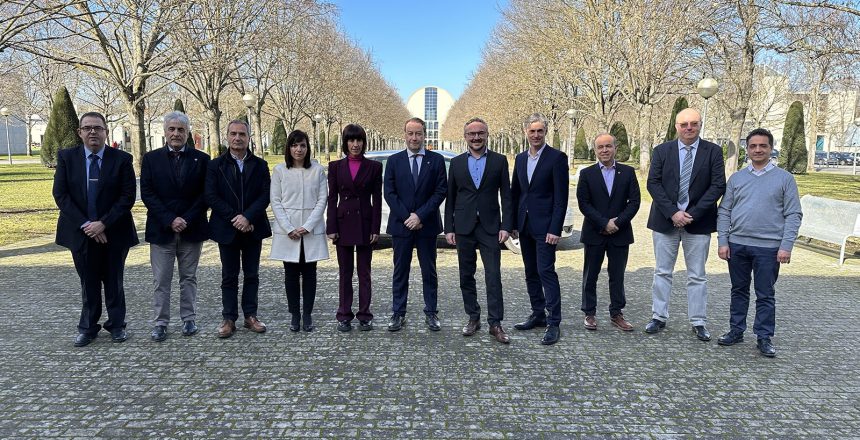This is the first time that the German company, the oldest engine manufacturer in the world, has collaborated with a university based outside its home country. In this way, DEUTZ joins the OTRI transfer contract recently signed by the Public University of Navarra and Tafalla Iron Foundry on the use of hydrogen as a fuel in industrial engines. The incorporation of the Central European company is due to the close collaboration it maintains with its Navarrese counterpart, as the latter is responsible for the casting of the engine blocks that are then used by the German firm for the assembly and start-up of its industrial engines.
To make this collaboration a reality, representatives of the three organisations met at the UPNA campus in Pamplona. On behalf of the University, in addition to the Rector, Ramón Gonzalo, and the Vice Rector, Francisco Javier Arregui, the professors from the Department of Engineering, Pedro Diéguez, Pedro Villanueva and José Carlos Urroz, were present.
Ignacio Ainzúa, Esther Sada and Atenea Romero attended on behalf of Tafalla Iron Foundry. Finally, the DEUTZ company was represented by Paul Grzeschik and Georg Töpfer (DEUTZ Germany) and Manuel Rodríguez (DEUTZ plant in Badajoz).
The project that unites the UPNA and Tafalla Iron Foundry and in which DEUTZ will now collaborate is framed in a scenario in which the new anti-pollution regulations in Europe are forcing engine manufacturers, especially diesel or gasoil engines, to look for new technologies. In this context, hydrogen is considered a protagonist for the decarbonisation of transport and, in general, of industry.
Tafalla Iron Foundry, with decades of experience in the casting of diesel engine blocks, wants to study the behaviour of these engines by burning hydrogen-diesel fuel mixtures. For its part, the Hydrogen Group’s almost twenty years of experience in the application of hydrogen as a fuel in petrol combustion engines is changing direction and is focusing on diesel engines in this project.
The meeting was followed by a visit to the UPNA’s Hydrogen Laboratory and Engine Laboratory, where the German engineers were able to see the state of research in this field at the University. They also drove through the campus in the Volkswagen Polo “Carlos”, a vehicle modified by the University’s Hydrogen Group to operate using hydrogen as fuel.
Source: unavarra.es




